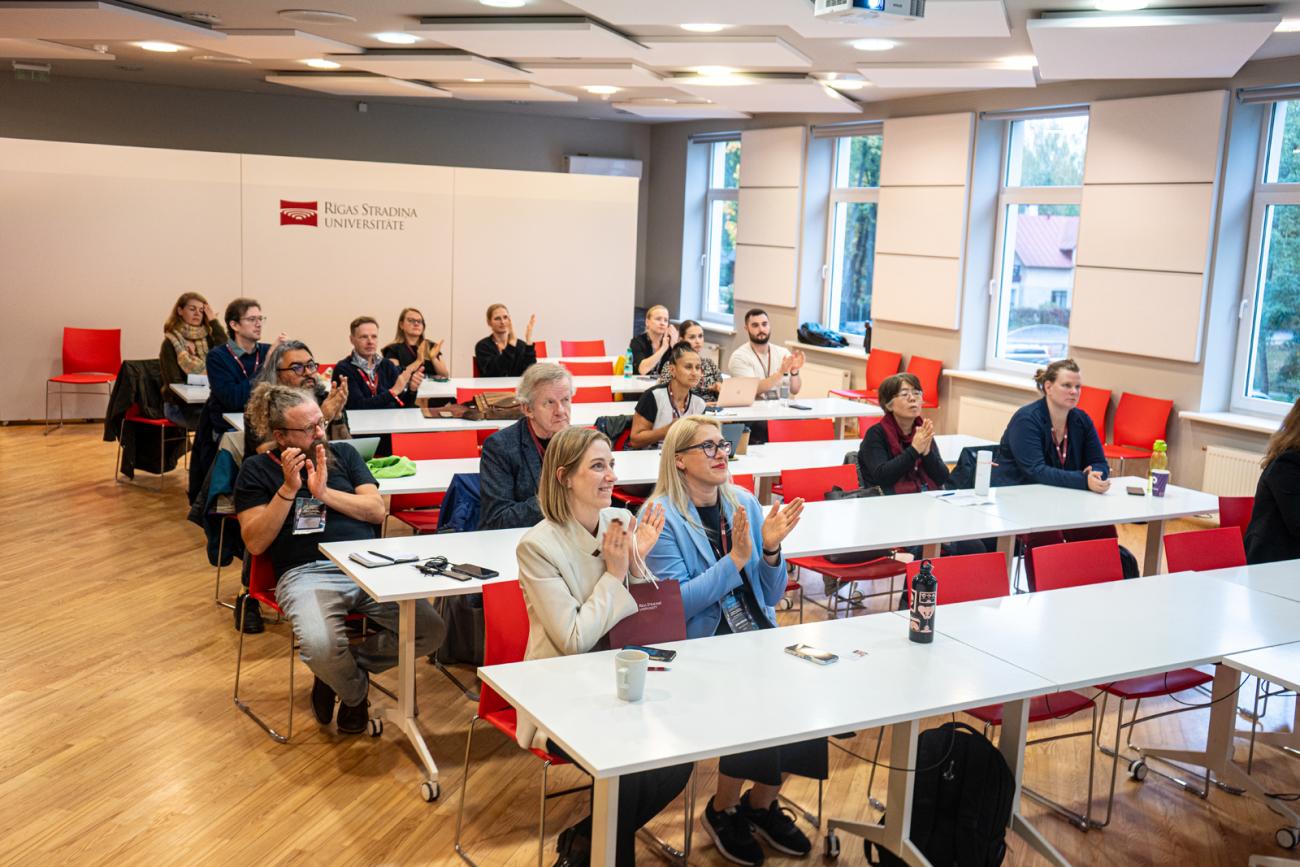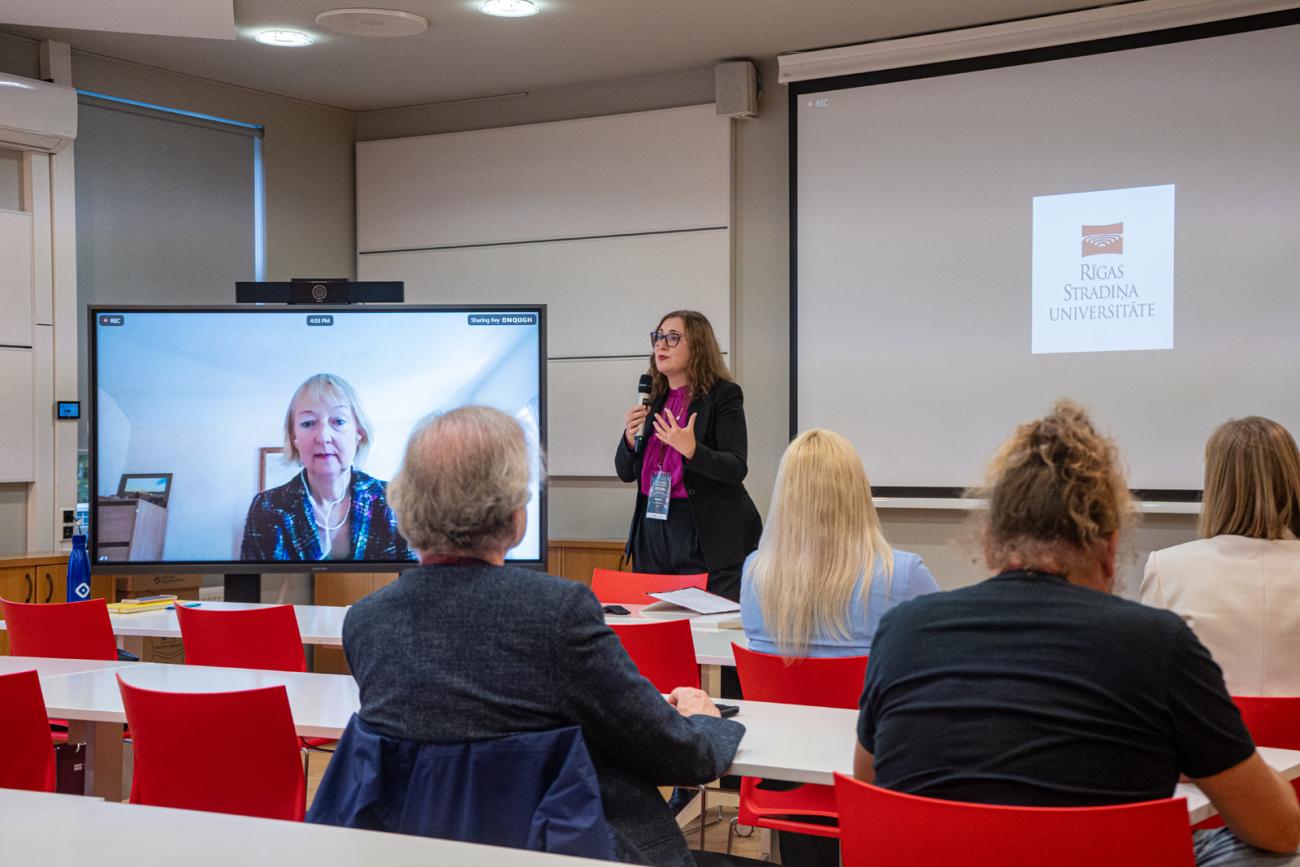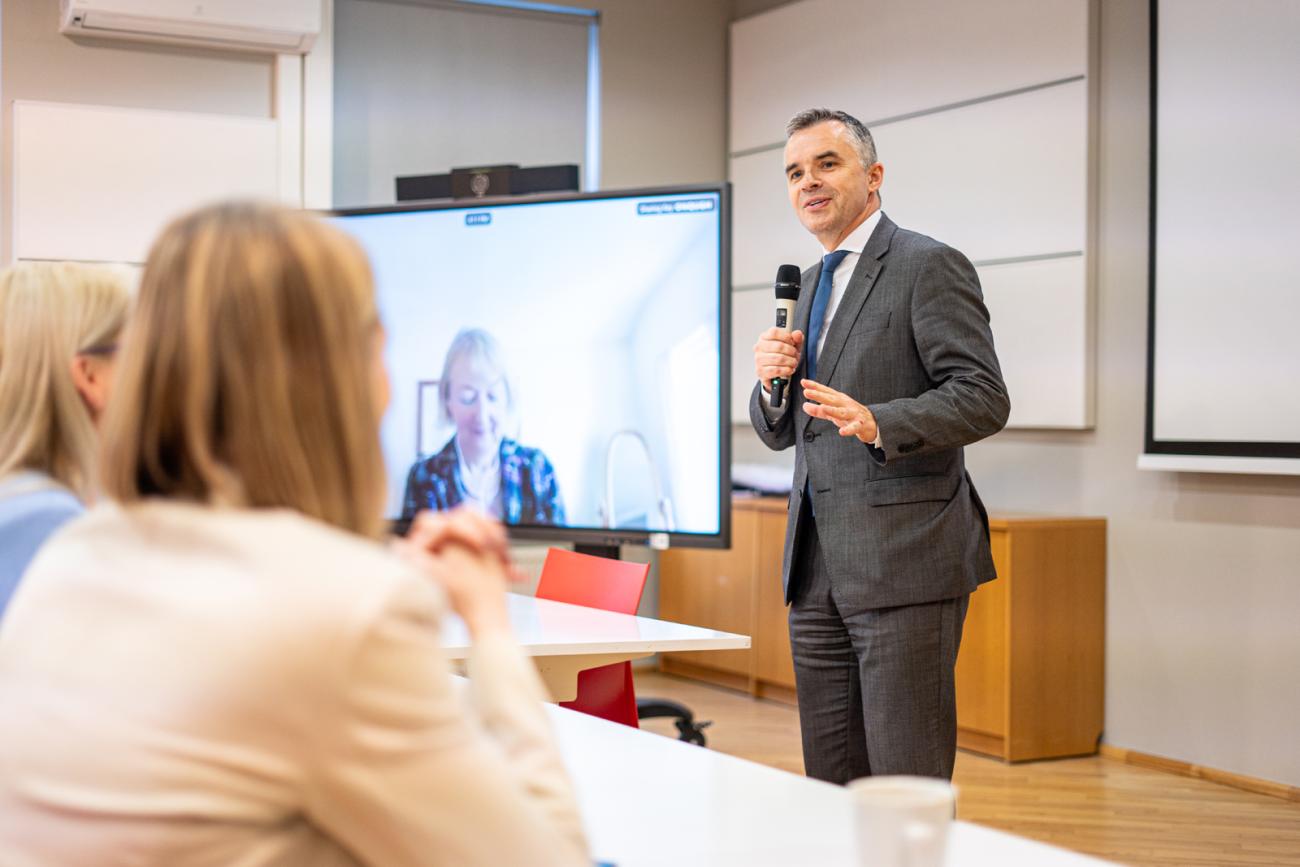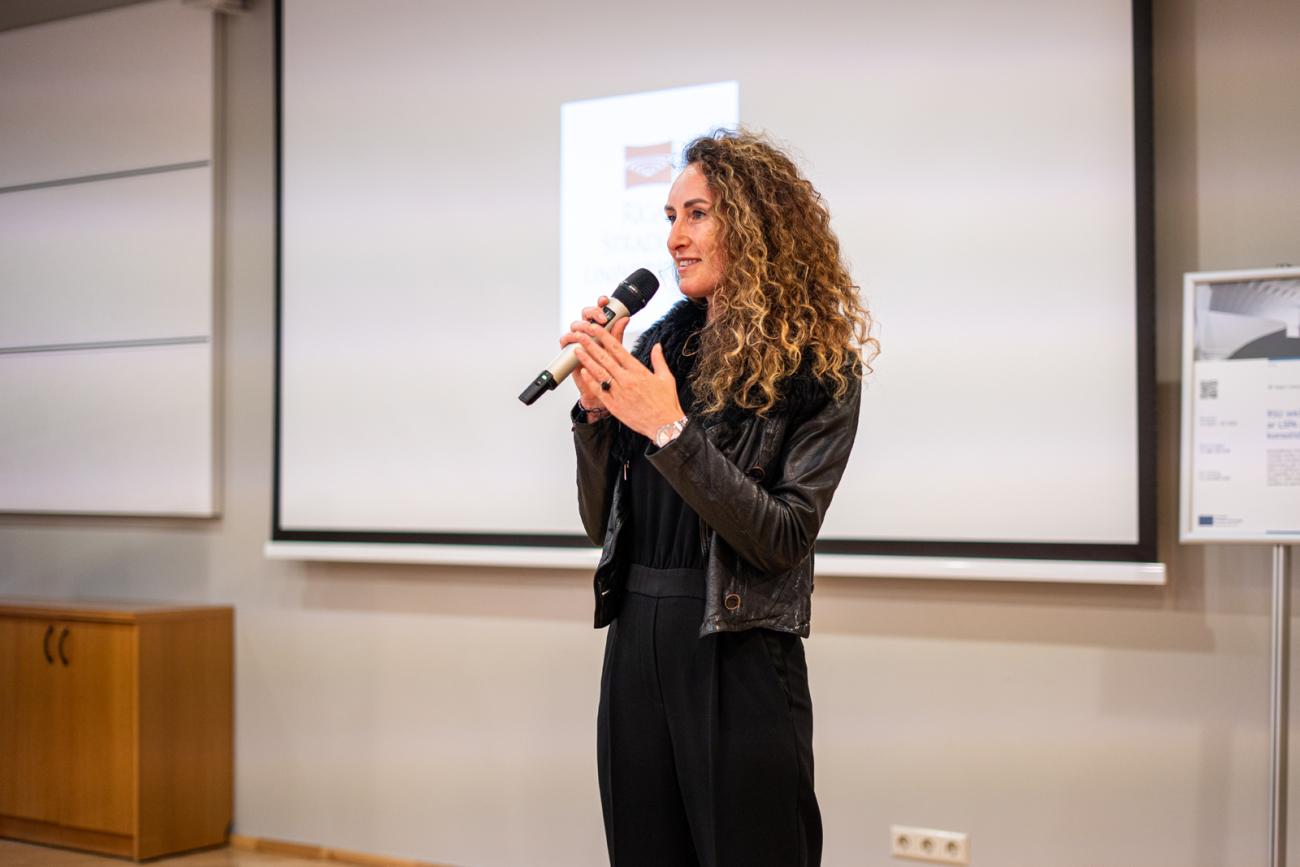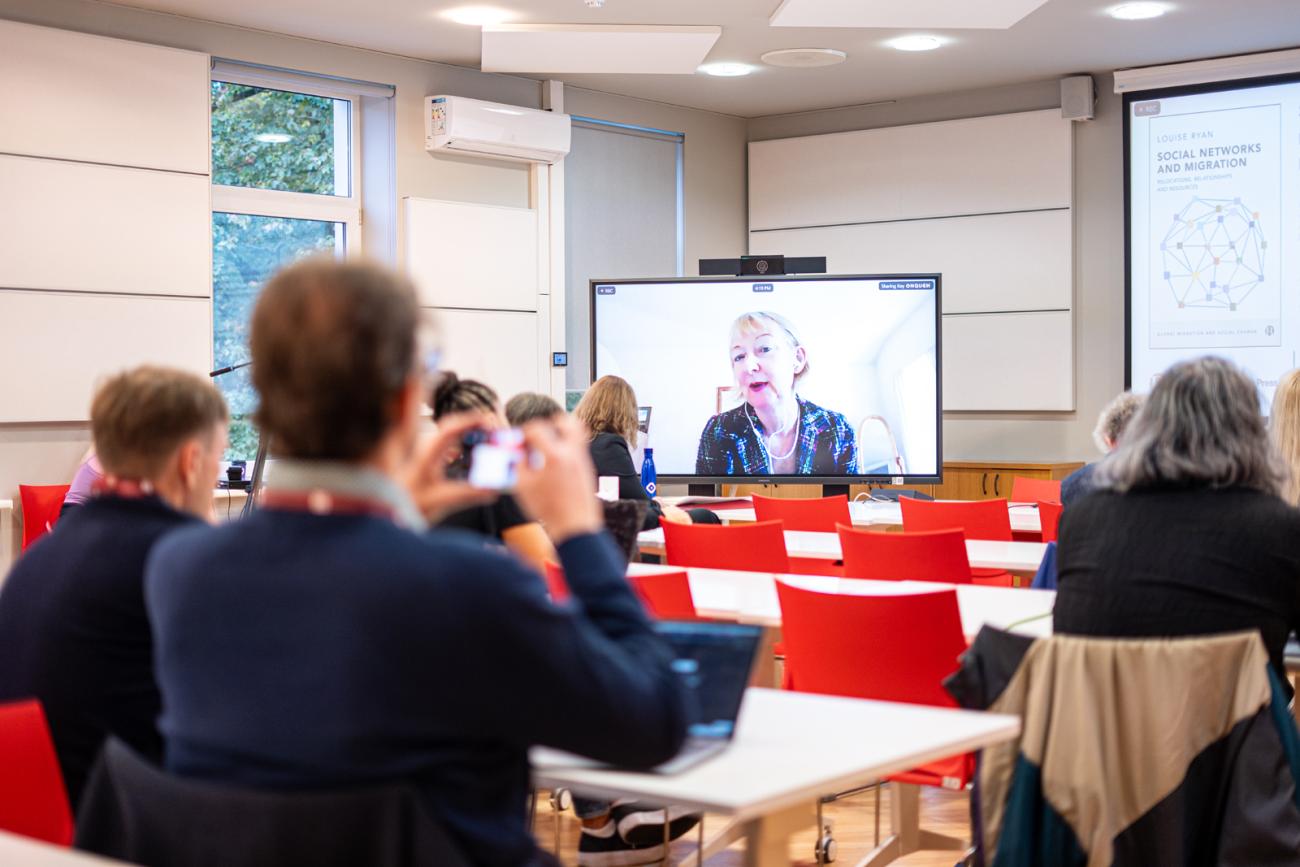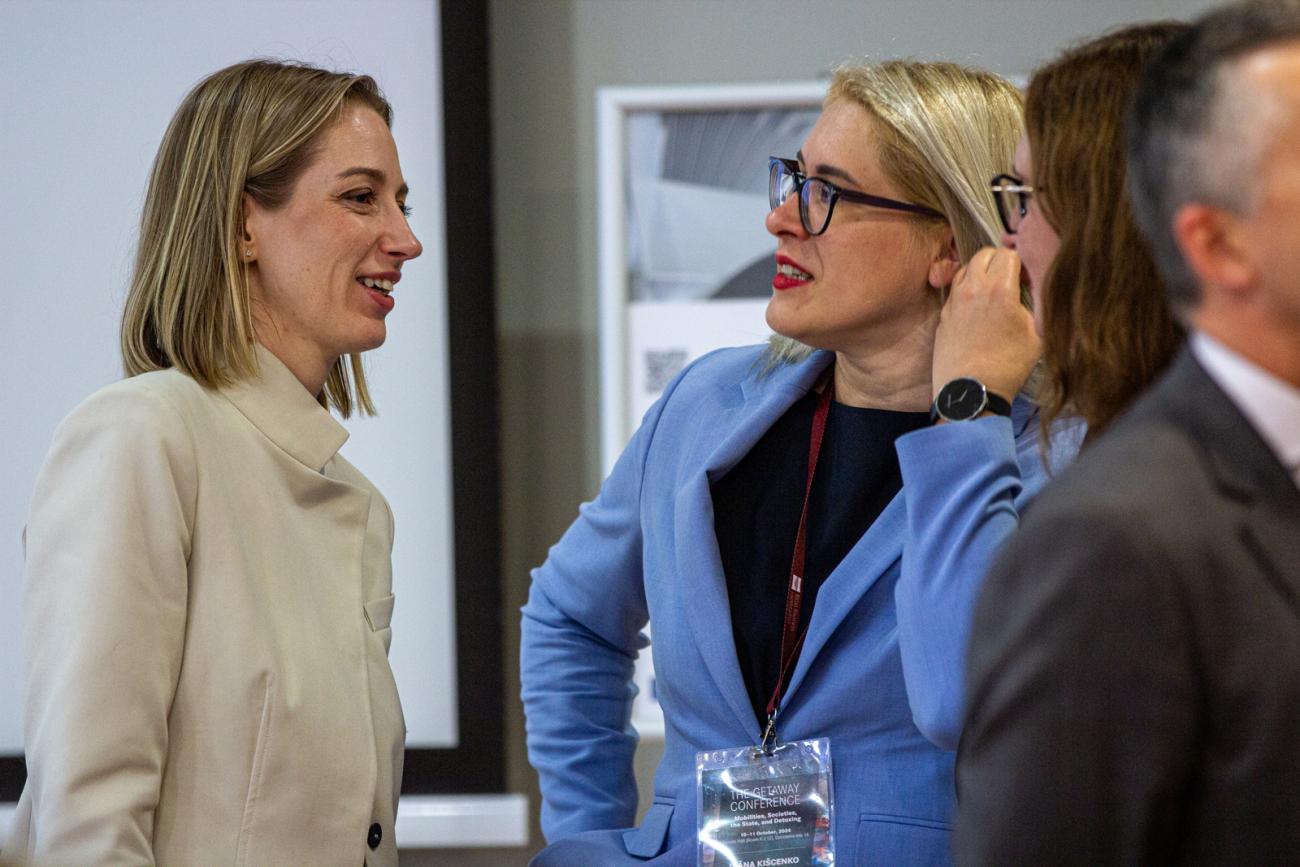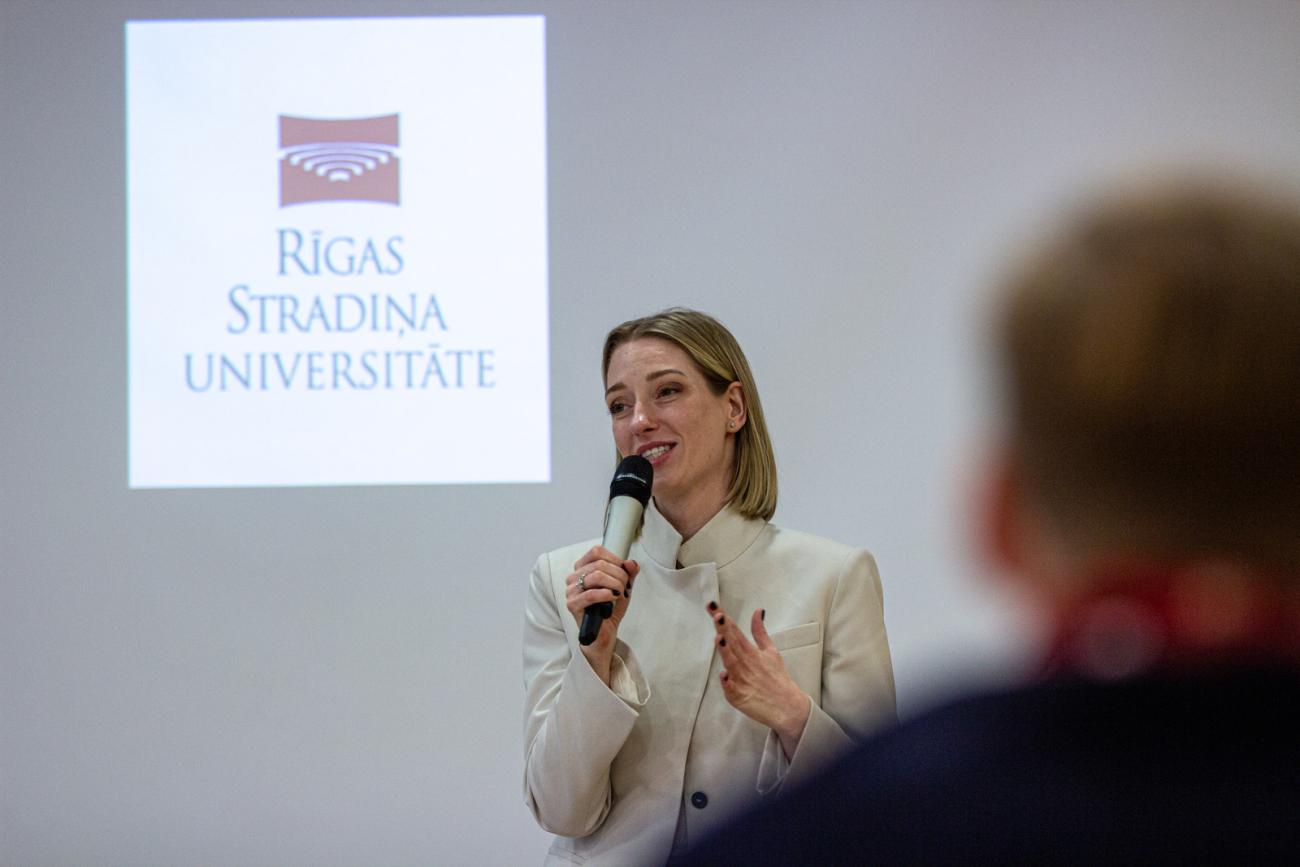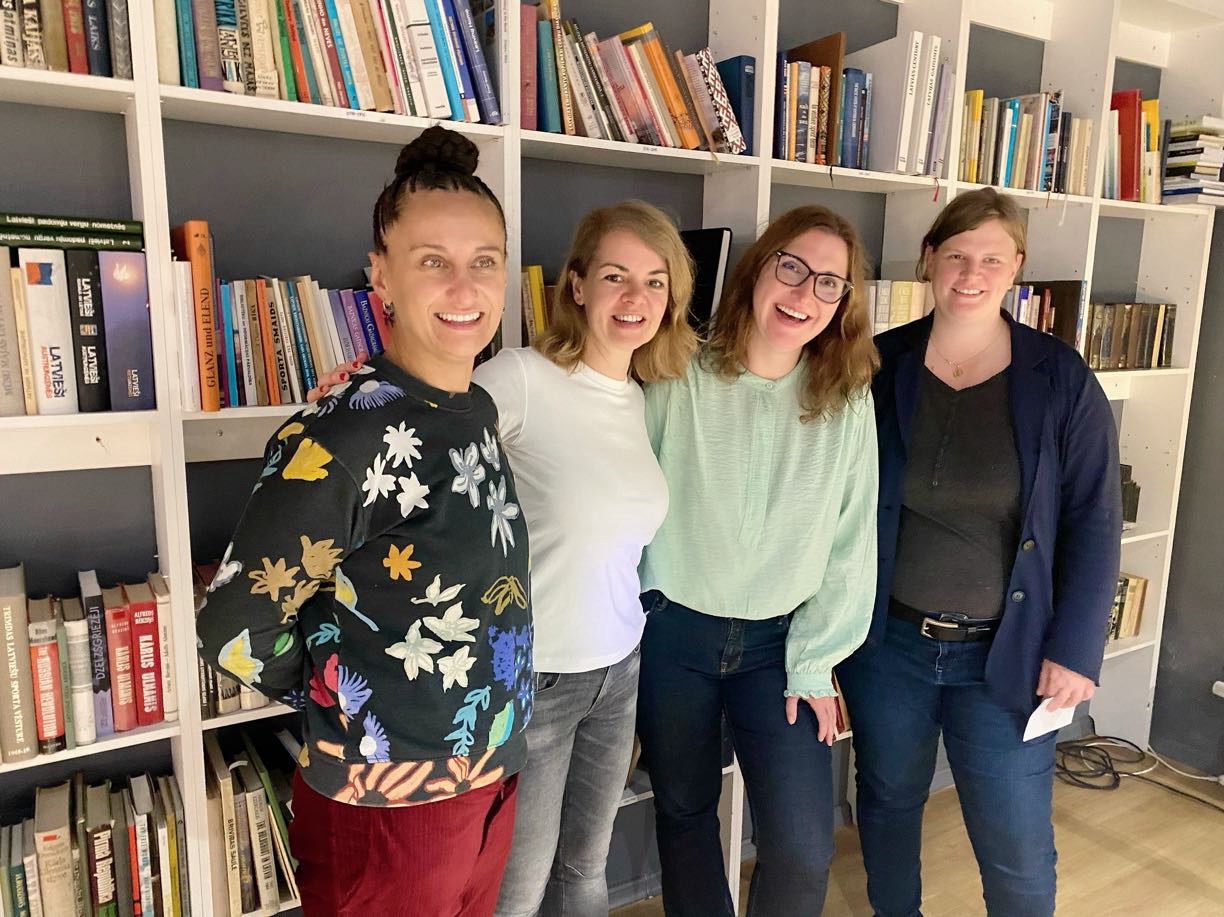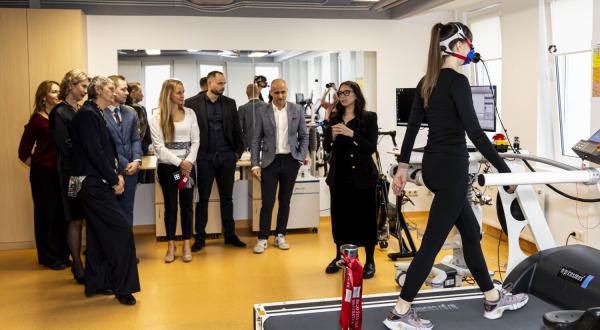Getaway conference took place in Riga
On 10 and 11 October, Rīga Stradiņš University (RSU) hosted the international conference ‘The Getaway Conference: Mobilities, Societies, the State and Detoxification’. It was organised by researchers from the RSU Social Sciences Research Centre as part of the project ‘(R)E-TIES: Managing mobility and human relations in digitally saturated worlds’ in collaboration with the FLPP project ‘Removing Ties’. The International Society for Ethnology and Folklore also provided information support for the event, as two of the organisers - RSU researcher and head of the Social Sciences Research Centre Ieva Puzo and senior lecturer at Karlstad University Christian Ritter - are leaders of the Society’s Mobility and Migration Working Group.
As Puzo explained at the opening of the conference, the conference call invited researchers from different social science perspectives to think about disconnection and distancing in different forms - for example, from places, processes, or human relationships. The conference theme thus outlines an innovative and topical angle in mobility research, with particular reference to the cross-border movement of highly skilled professionals.
In her opening remarks, Minister of Culture Agnese Lāce said: ‘Societal change, changing interpersonal and intergroup relations, identities and belonging are driving academic research, but more than ever this also underlines the need for a dialogue between researchers, practitioners and policy makers. I have worn all three hats and I am honoured to continue to participate in such intellectually stimulating platforms as this conference.’
The opening keynote address was delivered by Louise Ryan, Senior Lecturer at London Metropolitan University, on the theme ‘You need a network: how highly qualified refugees rebuild social networks to convert cultural capital and reclaim professional identities’. Drawing on long-term research with Afghan refugees in London, her presentation highlighted the need for a better understanding of how refugees or resettled people can overcome network disruptions or torn nets, the barriers they face in making new connections in new places, and the role of different social networks in helping refugees to reclaim their professional identities, build their cultural capital and relaunch their careers.
The second day of the conference was full of in-depth presentations and lively discussions, bringing together researchers from institutions across Europe and as far away as South America. Digital nomadism, the affective ties of food delivery couriers, the impact of family ties on (non)vaccination in different migration contexts, and professional and personal identities in different cross-border movement contexts were discussed. The active day of discussions concluded with an impromptu presentation by network researcher Valdis Krebs (Project ‘(R)E-TIES’), who shared his industry experience and urged us not to forget the important principle of cooperation: “Connect on your similarities, benefit from your differences".
The conference marked the beginning of a lively exchange of ideas, knowledge transfer and lasting future cooperation. It concluded with the discussion of joint international project proposals and cooperation on high-quality scientific publications.
The project No. 5.2.1.1.i.0/2/24/I/CFLA/055 ‘RSU internal and RSU with LASE external consolidation’ is financed by the investment of the European Union Recovery and Resilience Facility and the state budget. Project ‘(R)E-TIES: Managing mobility and human relations in digitally saturated social worlds’, No RSU-PAG-2024/1-0017.


